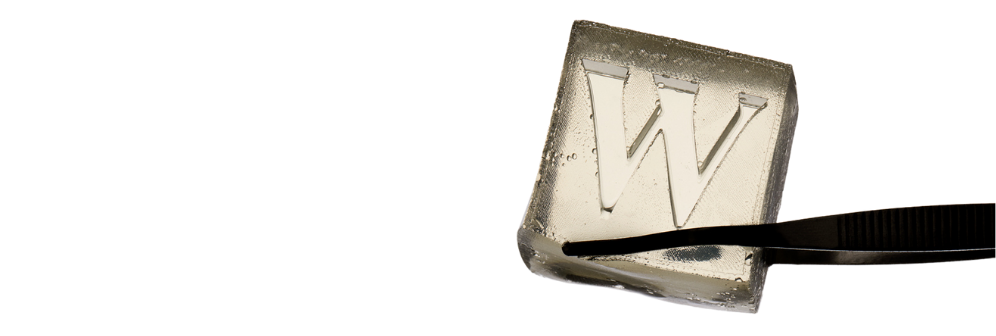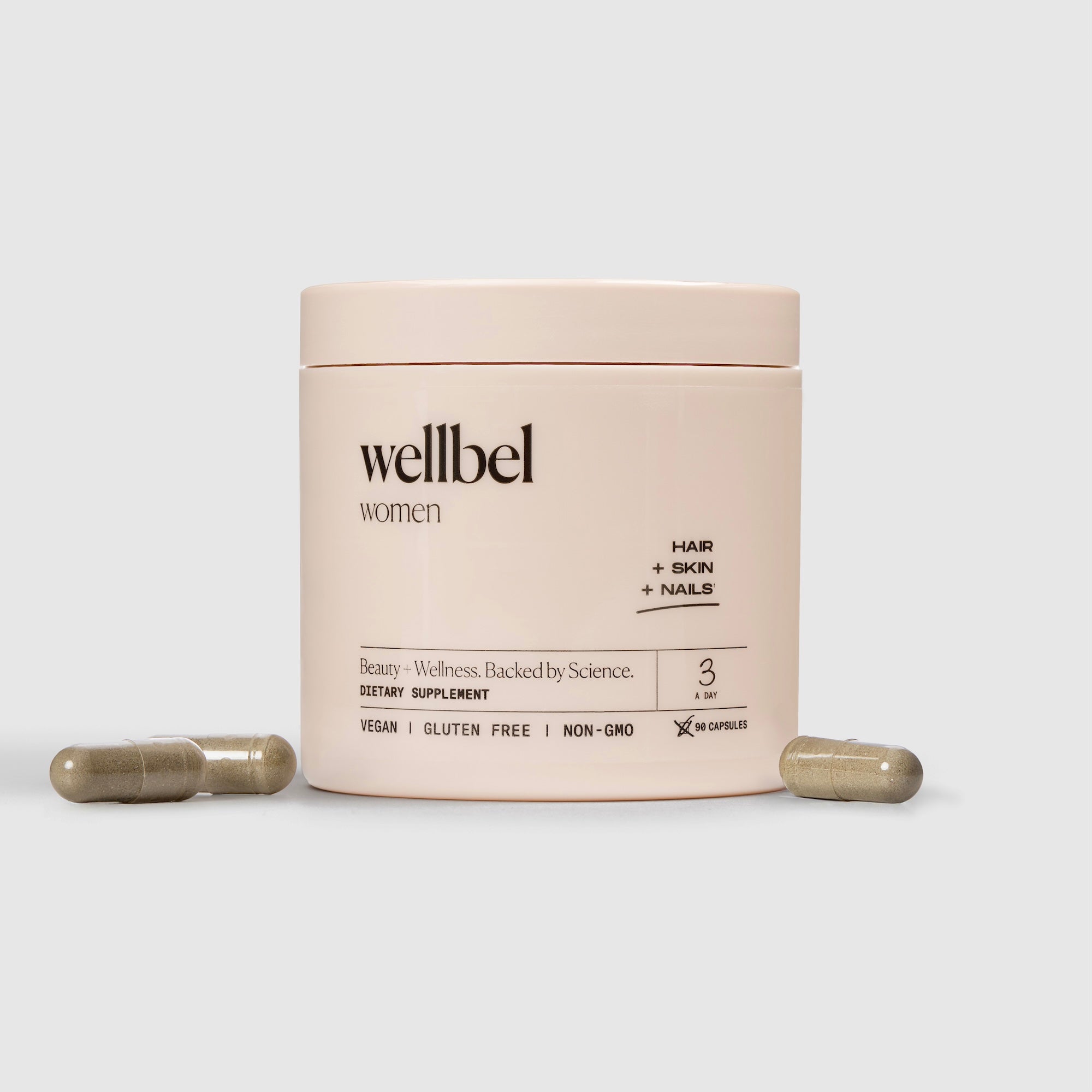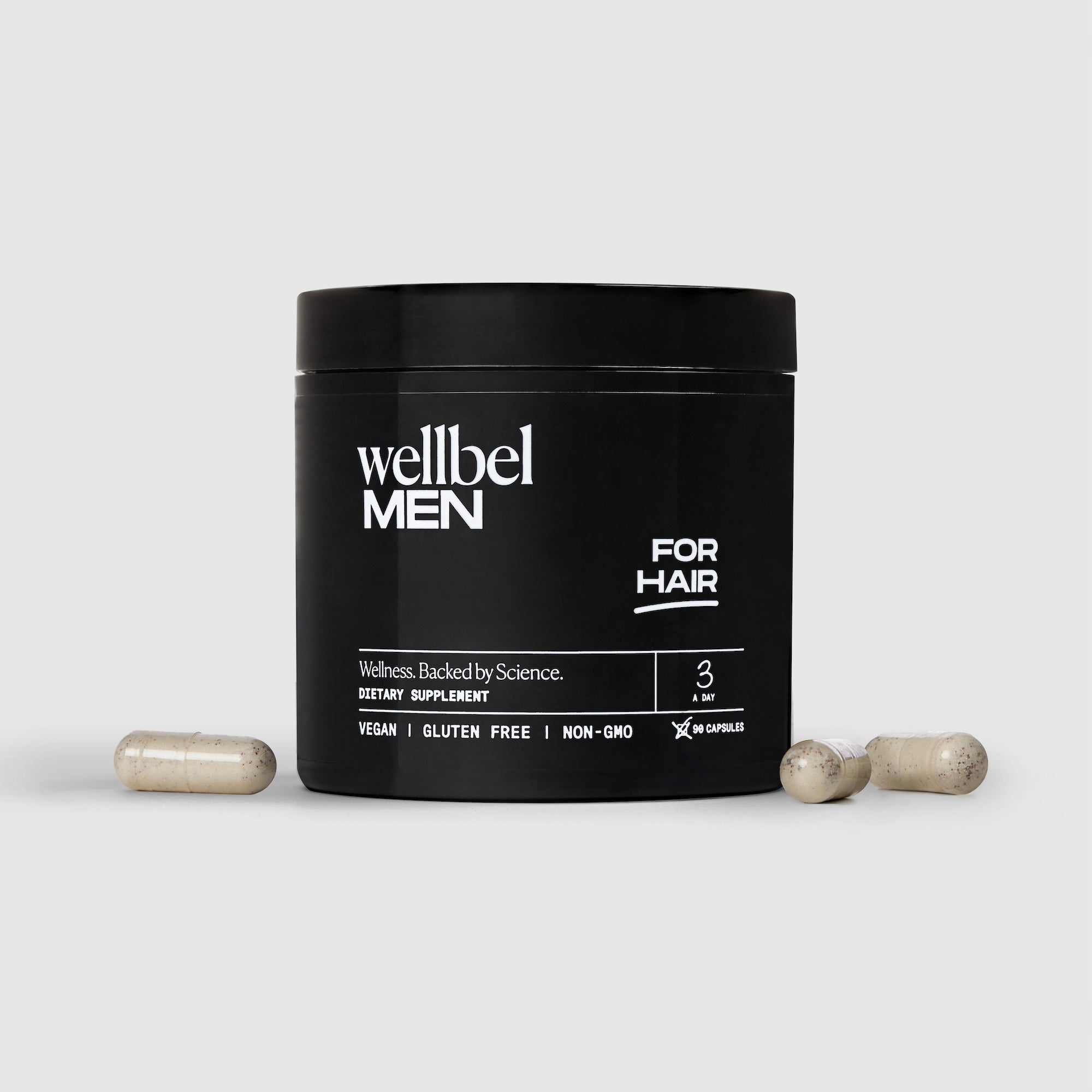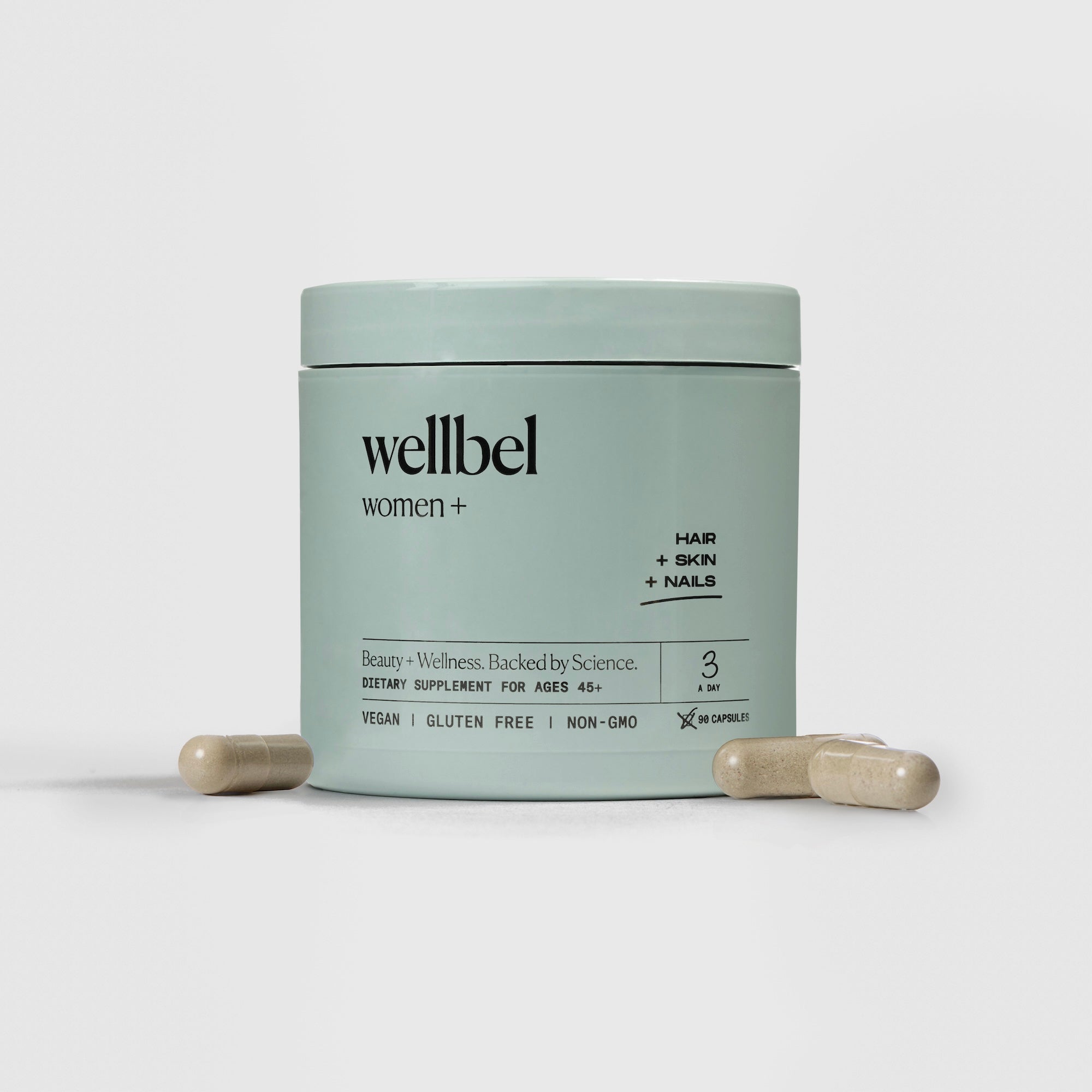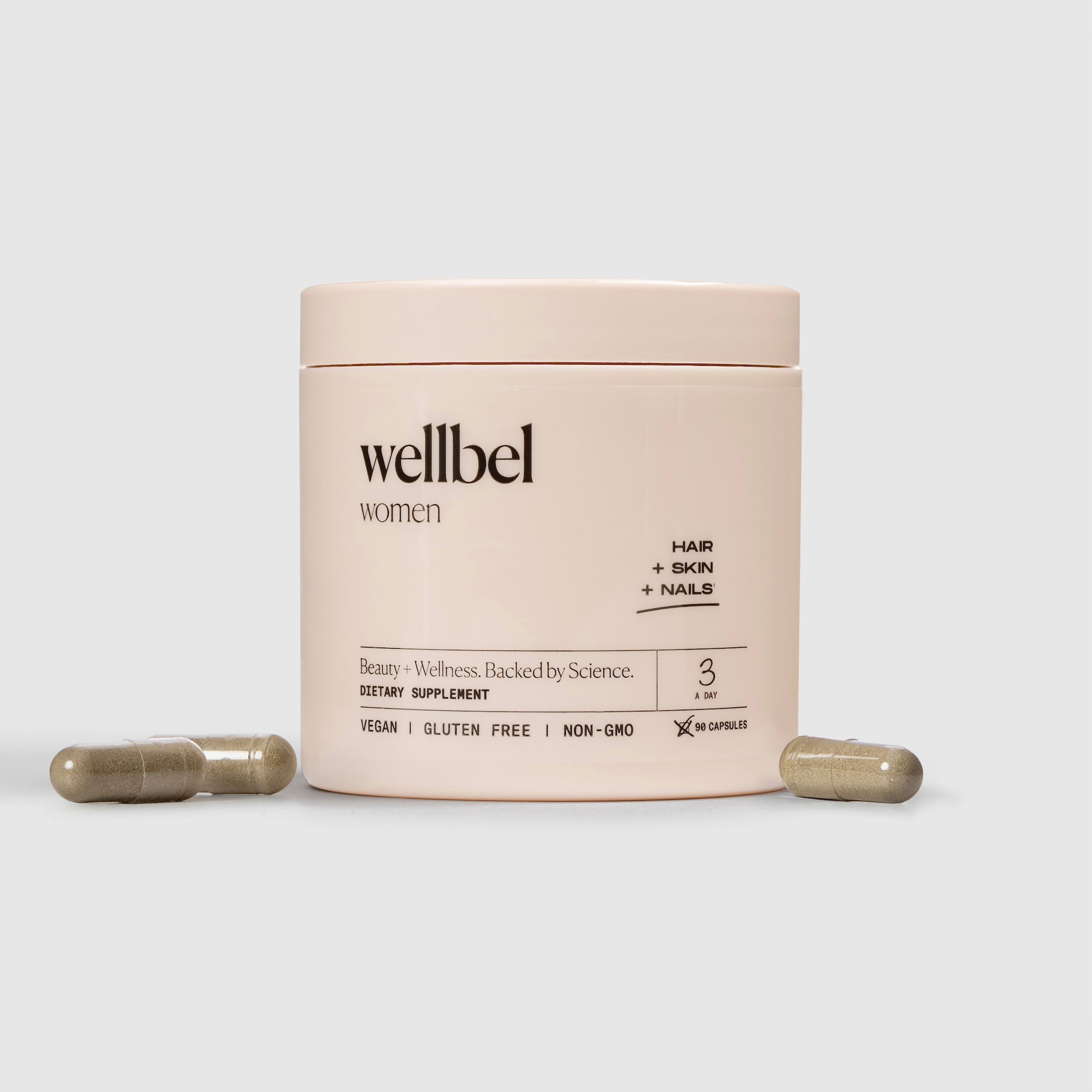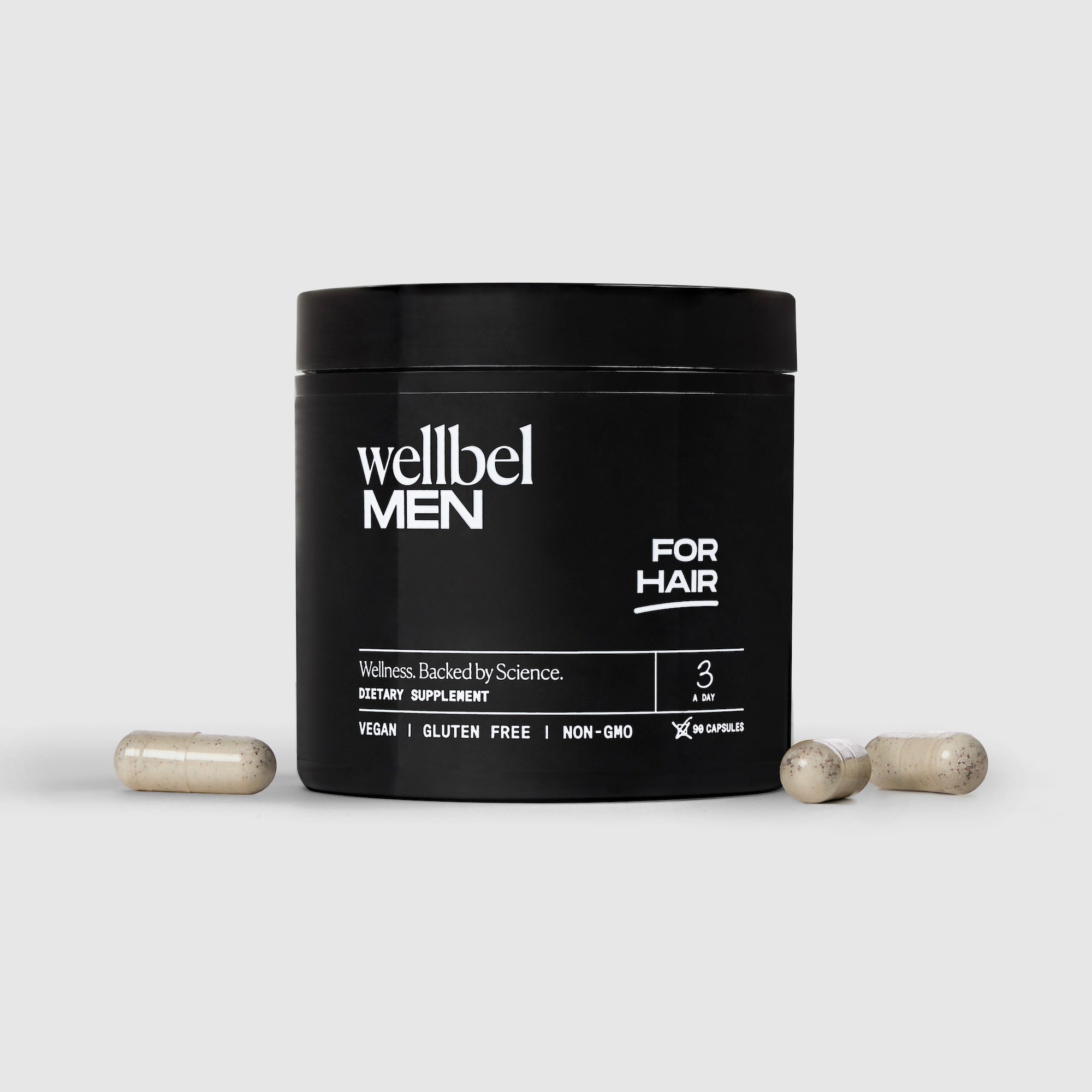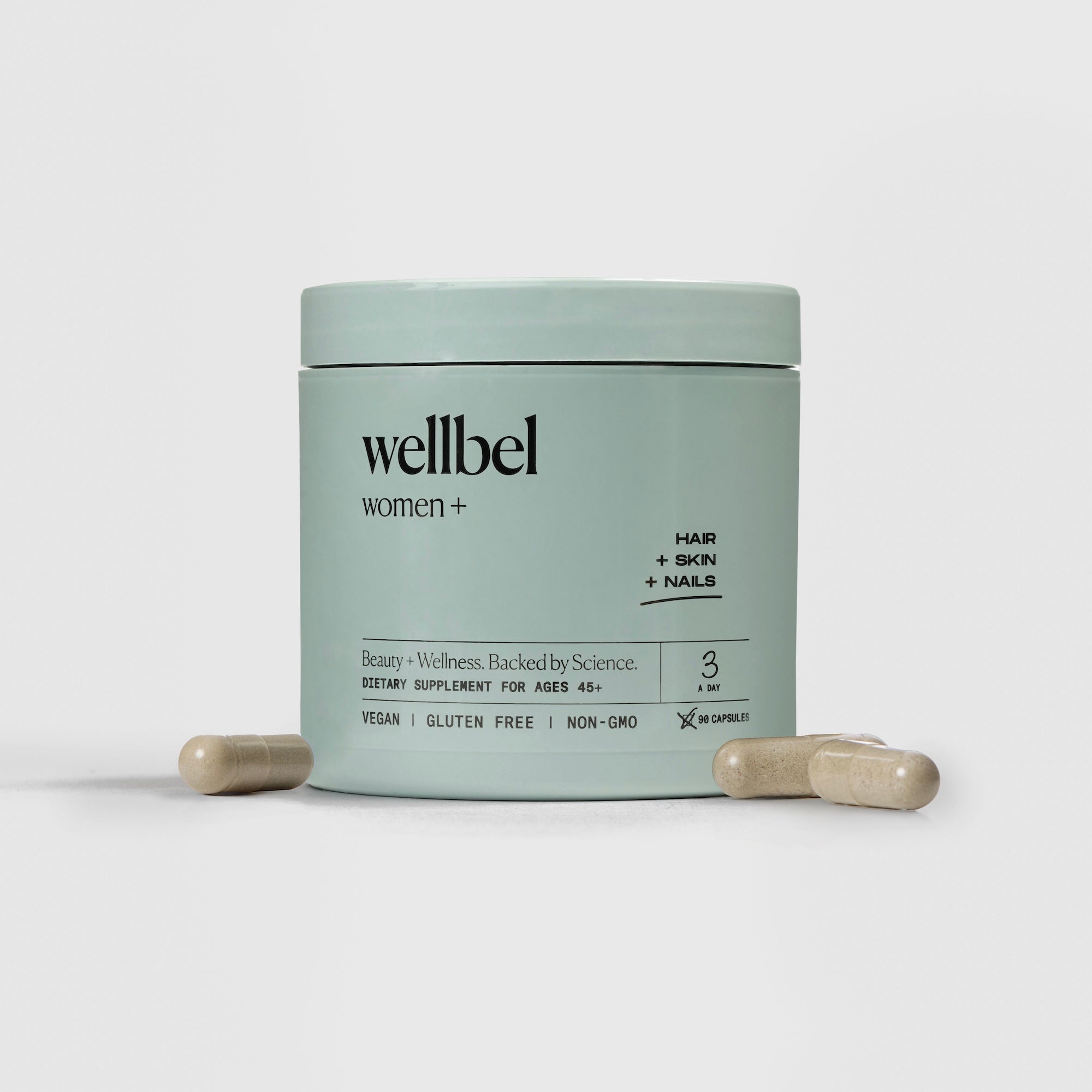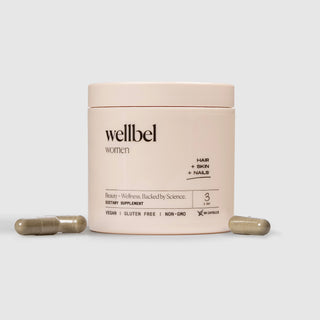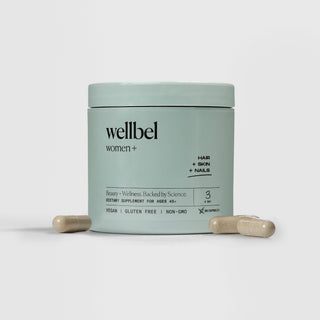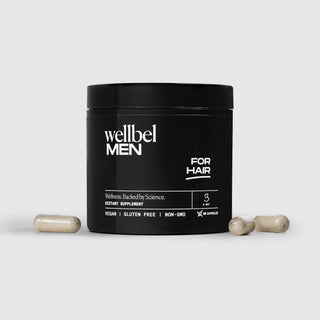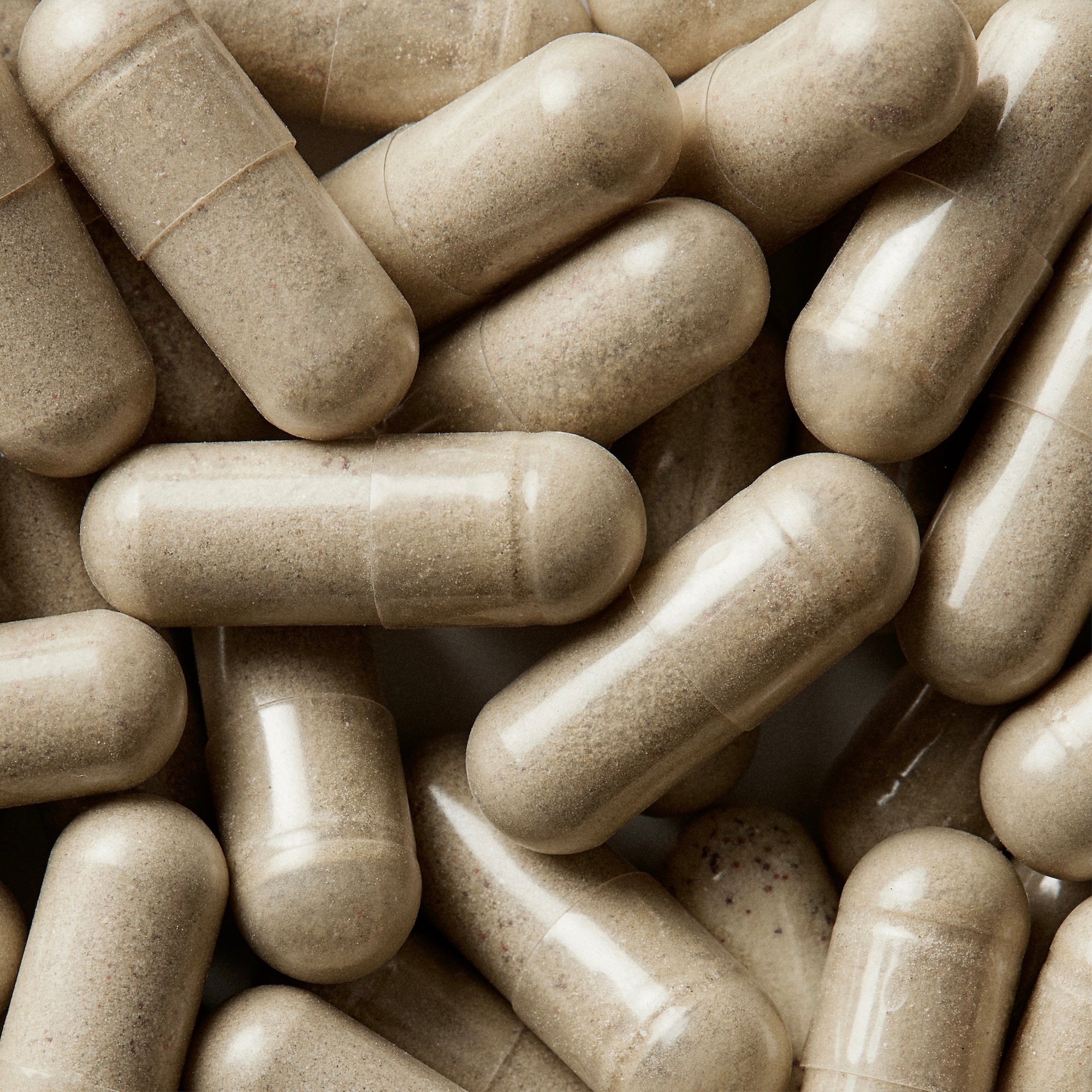Do you ever look at old photos of yourself and think… who is that?
Aging is a privilege — it means you’ve endured and leveled up. It means you’ve racked up experiences and come out the other side. But it also means you’ve gone through change. And with something as personal as our hair, change can be jarring. That first gray hair. A sudden shift in texture. Individual hairs falling out. It can be overwhelming.
The truth is that hair changes with age. Across all hair types and all hair textures, one of the only guarantees we have for hair health is that it changes.
This is a normal and expected part of life, but for one reason or another, it can be a scary topic to address. So let’s take this space to get real and answer the question once and for all — why is my hair getting frizzy as I get older? — plus offer some helpful tips for dealing with age-related frizz.
Why Does Hair Change with Age?
We’ll start with some science. Why does aging hair often look and feel different? While we’ll focus on texture today, we’ll also note that hair growth cycles are impacted by aging. It’s completely normal to experience hair thinning and hair loss as you get older.
Natural Graying
Graying hair is one of life’s inevitabilities. And whether you choose to color it or decide to ‘go gray,’ the fact is that this milestone will fundamentally change your hair’s texture and appearance.
So why does it happen in the first place? It all comes down to melanin, the pigment producing component that determines your skin, eye, and hair colors. As we age, the amount of melanin in our bodies decreases. As a result of less melanin production, hair is less pigmented and eventually turns white or gray.
People often associate gray hair with a new texture, but it’s not the lack of melanin that’s causing the texture change.
Hormonal Changes
It’s actually related to a lack of sebum.
Sebum is a natural oil that your skin produces for most of your life after childhood. Sebum is especially important on the scalp as it keeps this vulnerable spot hydrated and protected. It also travels down your hair shafts, giving you smoother hair. Your curl pattern can play a big role here as well. Curly hair is often drier than straight hair because sebum has a harder time moving down the hair shaft.
The reason we associate coarser hair with aging is related to our production of sebum.
Our hormones are always in a delicate balance and in the aging process, this balance evolves. When we get older, we produce less sebum. This is especially true for many women after menopause. Less sebum often means coarser, more brittle hair. In other words? Frizz.
External Factors
Changes in hair can also be related to lifestyle and environmental factors. Oxidative stress is the real culprit here. Oxidative stress can damage hair follicles, changing the quality of the hair that they produce.
Where does it come from?
Well, oxidative stress can result from a number of factors, including sun damage, pollution, cigarette smoking, and heat and chemical damage. As we age, our body becomes less resilient to these factors and as a result, our hair strength can diminish and start to feel totally different.
What Can You Do To Keep Your Hair Hydrated and Healthy?
So now that we understand why hair becomes frizzier with age, let’s talk about how we can address it.
Deliver Daily Nutrients
One of the best things you can do for your hair is ensure you’re receiving comprehensive internal nourishment every day, including vitamins, minerals, and hydration.
To fight the impact of oxidative stress, we suggest adding a daily supplement to your diet, like Wellbel Women and Wellbel Men. Both formulas include MSM. MSM is mostly sulfur, which supports joint and soft tissue health. As a potent antioxidant, sulfur reduces unhealthy inflammation and stimulates amino acid production. In short, it helps support the bonds between the hair follicle and hair fibers, for stronger, more resilient hair.
If you’re dealing with thinning hair, in addition to frizzing hair, then a clean and vegan daily supplement can help stabilize your hair health.
Wash Less, Condition More
We believe that beautiful hair starts from the inside out, but as age-related frizzing is often linked to a lack of sebum, there are steps you can take to topically treat texture changes. One important step is ensuring your hair strands are getting enough moisture.
Washing is one of those age old debates in the hair care industry. If you’re looking for a magical number for how often you should wash your hair, you won’t find it here. Everyone’s hair is different and requires a different hair care routine.
Our recommendation is to listen to your hair. Instead of washing your hair every time you shower, try assessing the hair and wash only as a reaction when you notice that products and dirt have built up. Oil can actually be your friend. As it is, we’ve heard from our community that when they take Wellbel they find they need to wash their hair less frequently!
You should also use deep conditioners and hair masks regularly and focus these products on the ends, which are least likely to pick up natural oils from your scalp.
Pay Close Attention to Products
The choice to color your hair is a totally personal one and there’s no judgment from us either way. That said, if you do choose to color your hair, try to seek out treatments that are kinder to your scalp health. Over the last few years, a number of brands have started to formulate more natural and less harsh permanent and semi-permanent color products.
That’s true of shampoos and hair serums as well. Pay close attention to the ingredient labels on your hair care products and toss any that include harmful chemicals like sulfates, parabens, and phthalates.
Know When to Ask for Help
Last but not least is this important note — when all else fails, talk to your doctor.
If you’ve noticed a dramatic shift in your hair density, experience hair loss, or stop producing new hair altogether, it’s possible there’s an underlying health issue. Hair is often reflective of what’s going on with our internal wellness.
Last Thoughts on Aging, Hair, and Reclaiming our Confidence
When our hair texture shifts, it can feel like we’ve crossed a milestone we can’t come back from. Hair aging is a reality of getting older, but with nutritional and lifestyle choices, we can bring life back to our locks.
Healthy hair starts within. A balanced diet, including nutrients that support hair growth and natural oils, plus hydration and moisture will help ensure your hair looks its best. While we can’t necessarily stop the aging process, we can supplement our bodies with the nutrients it needs and fill in the gaps.
No matter what your hair type is, aging is nothing to fear once you understand the root cause of the changes. With Wellbel, you can reclaim a healthy scalp and a healthy growth cycle, with an all-natural and vegan formula. These powerful ingredients have the power to stimulate hair growth, produce hair strengthening oils, and balance your hormonal health. Just ask our growing community of all ages.
Sources:
Age-Related Changes In Sebaceous Gland Activity | Journal Of Investigative Dermatology
Why Does Hair Turn Gray? | Library Of Congress
Why You Need To Change Your Regimen For Aging Hair | Allure Magazine
